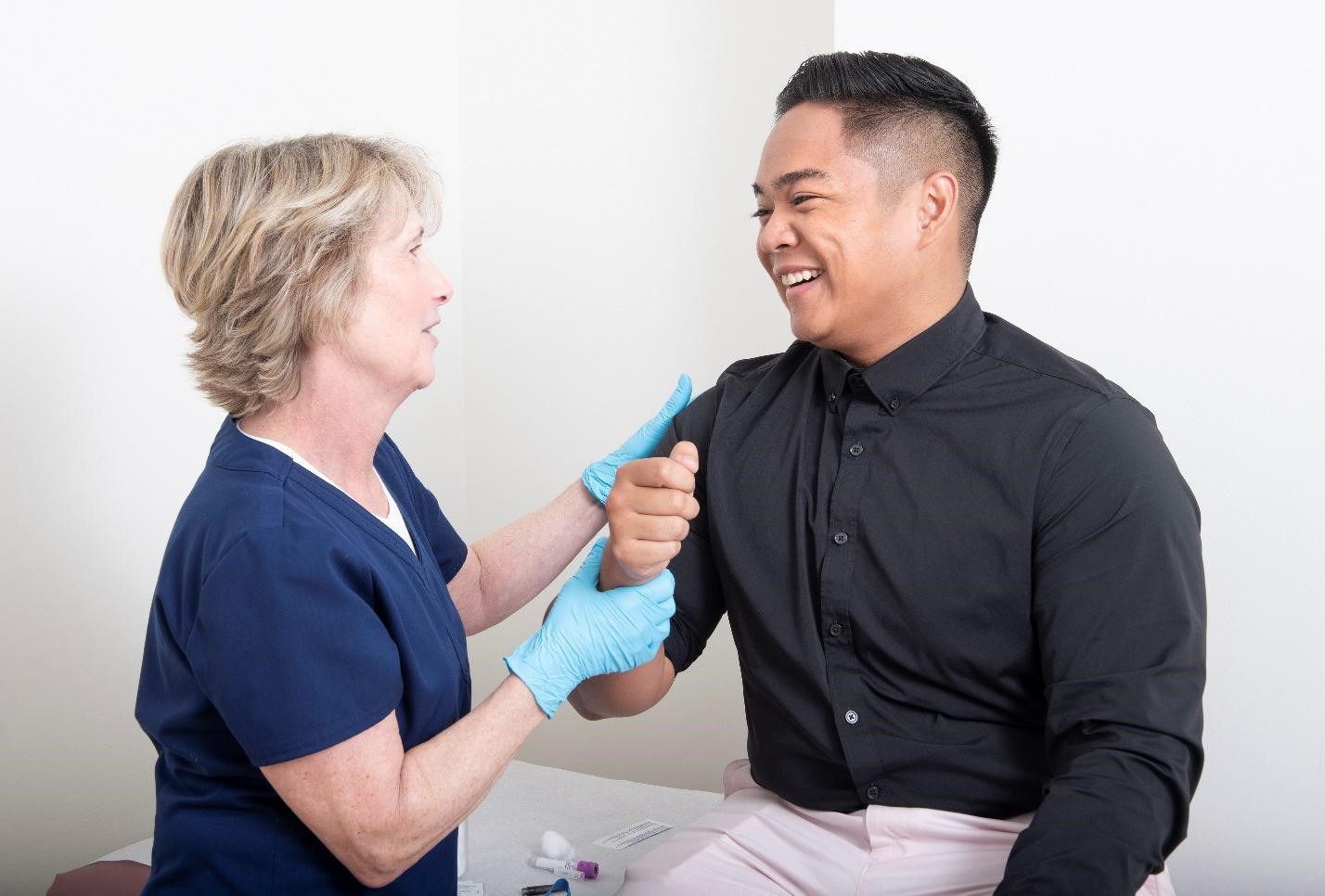LUPUS
Meet the Lupus Specialists Who Put Your Health First
When you’re facing a complex autoimmune disease like systemic lupus erythematosus, having the right team by your side can make all the difference. Arthritis, Rheumatic & Bone Disease Associates is one of the nation’s most experienced rheumatology practices. For over 40 years, we’ve built trust with the South Jersey and Philadelphia communities by putting patient care first, offering compassion and expertise that make a real difference in managing challenging diseases.
We know that lupus can affect nearly every part of the body, from the skin to major organs like the brain and blood vessels, making early and accurate diagnosis essential. That’s why our approach emphasizes multidisciplinary care — and provides you with access to a network of lupus specialists. Together, we work closely to minimize your lupus symptoms and maximize your quality of life.
Lupus Treatment Specialists in New Jersey
Systemic Lupus Erythematosus: “The Great Imitator”
Systemic Lupus Erythematosus (also called “SLE”) is a serious autoimmune disease that can strike just about anywhere in the body, including:
- Joints
- Skin
- Kidneys
- Heart
- Lungs
- Brain
- Blood vessels
Some people live more easily with the disease because symptoms are infrequent and mild, while others experience severe symptoms that occur regularly. Women of childbearing age are more likely than others to develop lupus.
Our team specializes in treating not just SLE but also Discoid Lupus Erythematosus (DLE) and Cutaneous Lupus Erythematosus (CLE).
What Are Common Lupus Symptoms?
- Extreme fatigue: Often one of the most debilitating symptoms, fatigue can impact daily life for patients with lupus, even with adequate rest.
- Joint pain and swelling: Resembling rheumatoid arthritis, these symptoms can make movement painful and restrict mobility over a long period.
- Skin rashes: The characteristic “butterfly rash” across the cheeks is a common sign of lupus, though other rashes may appear across the body.
- Fever: Low-grade fevers without an apparent cause could indicate inflammation linked to autoimmune diseases like lupus.
- Chest pain when taking a deep breath: This may be caused by inflammation of the lining around the lungs or heart, a condition known as pleuritis or pericarditis, which is common in lupus.
- Sun sensitivity: Many patients experience heightened sensitivity to sunlight, which can trigger lupus flares or worsen existing skin symptoms.
- Headaches: Frequent or severe headaches, sometimes linked to inflammation in the brain, are another potential symptom of lupus.
- Hair loss: Thinning hair or noticeable hair loss is common and may occur due to inflammation of the scalp or as a side effect of certain treatments.

Importance of Specialized Care in Lupus Management
No two patients experience lupus the same way, making specialized care vital in addressing the diverse and often fluctuating symptoms. At ARBDA, we offer personalized treatment plans that focus on you as a whole — not just the disease. Our goal is to improve your outcome and quality of life.
How Can I Make Sure I Get the Correct Diagnosis From My Doctor?
Getting the right diagnosis starts with choosing the right physician. Our rheumatologists are specialists in diagnosing, treating, and managing every type of lupus along with the everyday problems they cause. Getting an accurate diagnosis may take time and includes assessing your medical and family history, various lab tests (including blood clotting, antibody tests, urine analyses, etc.), and other methods as your physician sees fit.
How to Find the Best Doctor for Lupus
Finding the best doctor for lupus starts with seeking specialists who have extensive experience in diagnosing and managing this complex disease. At ARBDA, our team of top-tier rheumatologists provides exceptional patient care backed by five decades of experience. Our physicians are well-versed in recognizing lupus symptoms and utilizing advanced diagnostic techniques for a timely and accurate diagnosis.
When choosing a doctor, consider their approach to comprehensive care. We pride ourselves on offering multidisciplinary care, collaborating with experts across various fields to offer you access to clinical trials and new treatments. Your health is a journey, and we are here to support you every step of the way.
What Is the Typical Treatment & Management for Lupus?
Your ARBDA rheumatologist will tailor a treatment and management plan based on your symptoms and the frequency of your flares. Your lupus specialist may prescribe medications to:
- Reduce pain, swelling, and fatigue
- Change how the immune system works
- Help prevent joint damage
Since this is a chronic illness, you will work closely with your doctor on a regular schedule. Depending on where your lupus symptoms occur in the body, you may also see a cardiologist for any problems affecting your heart, a nephrologist for kidney issues, or a dermatologist for skin disorders related to lupus.
Your rheumatologist specializing in lupus will be the center point of communication for your clinical team and will help you cope with the day-to-day challenges of living with lupus.
Monitoring and Managing Lupus Flares
A lupus flare can feel unpredictable, with symptoms intensifying suddenly and impacting your overall well-being. Managing these flares involves understanding your triggers and having a proactive treatment plan in place.
Luckily, we help patients identify patterns that lead to flares — such as stress, infections, or environmental factors — so they can take preventive measures. Our rheumatologists use cutting-edge diagnostic tools to monitor changes in your immune system, ensuring timely intervention before a flare disrupts your life.
